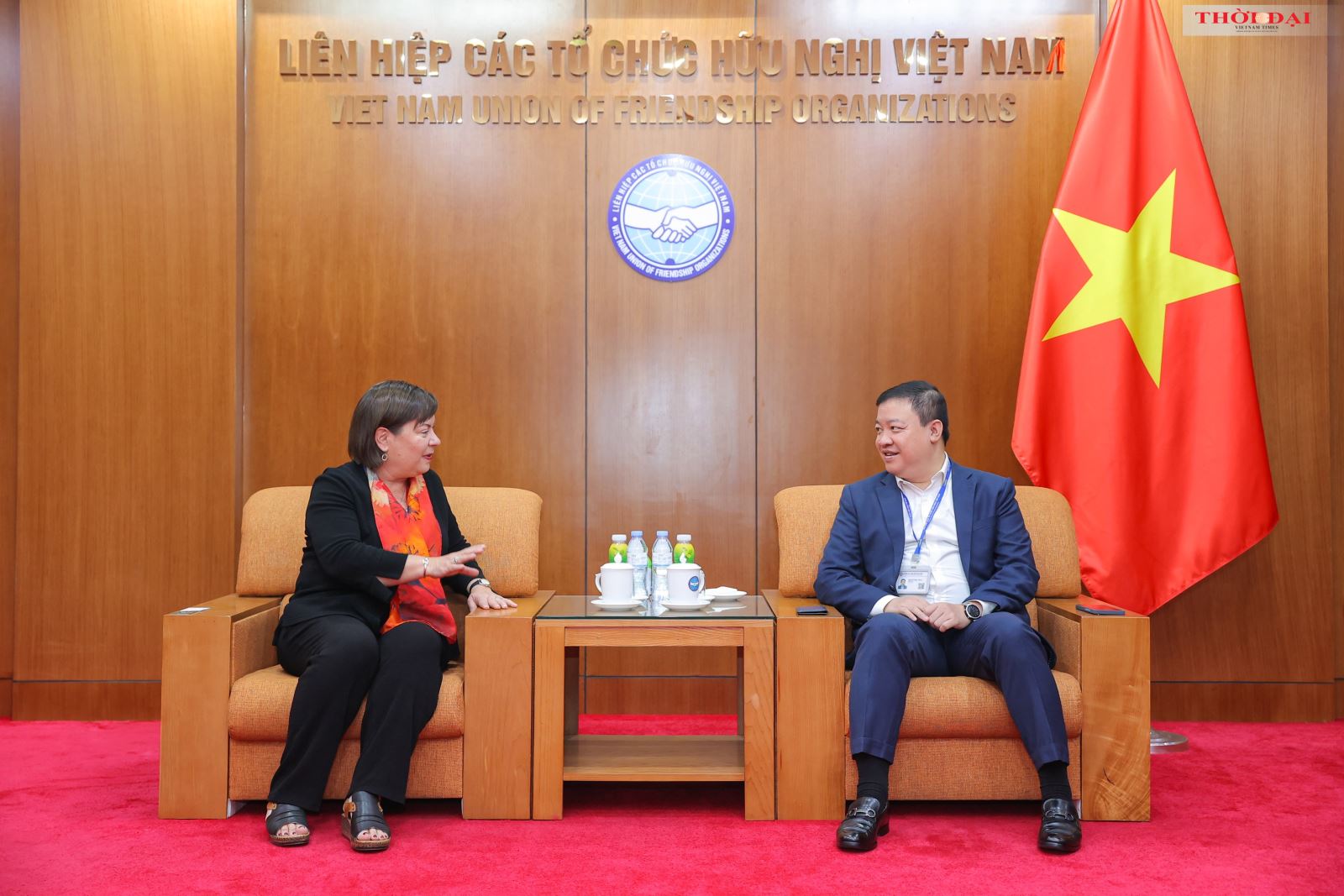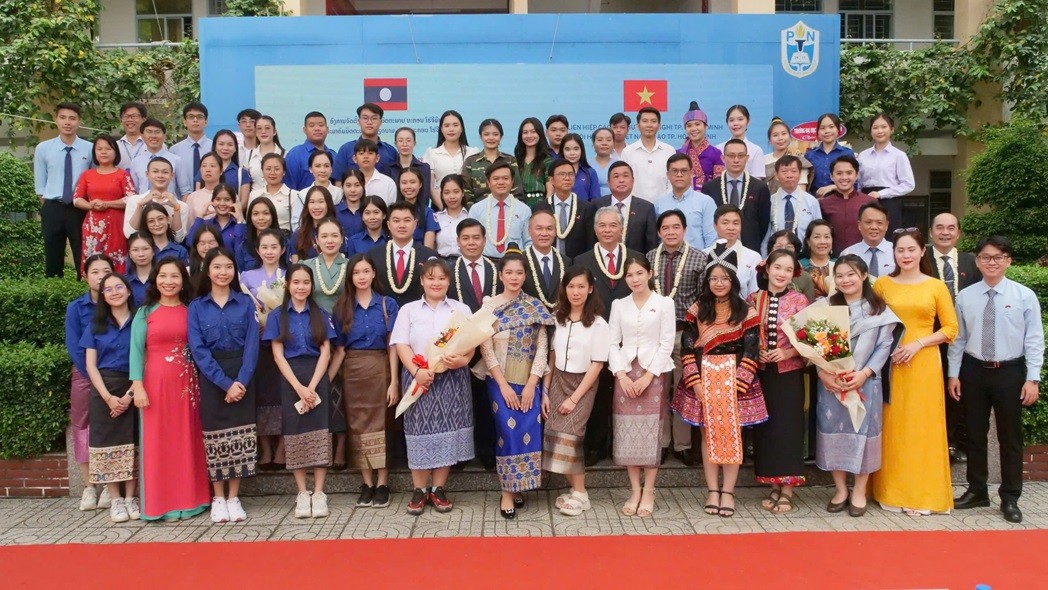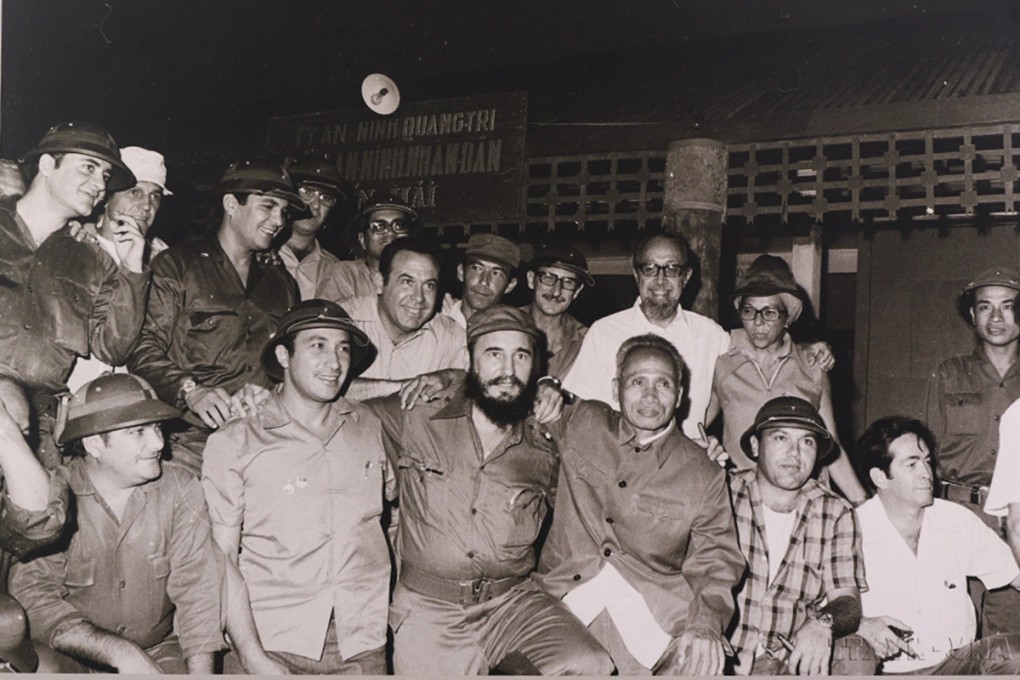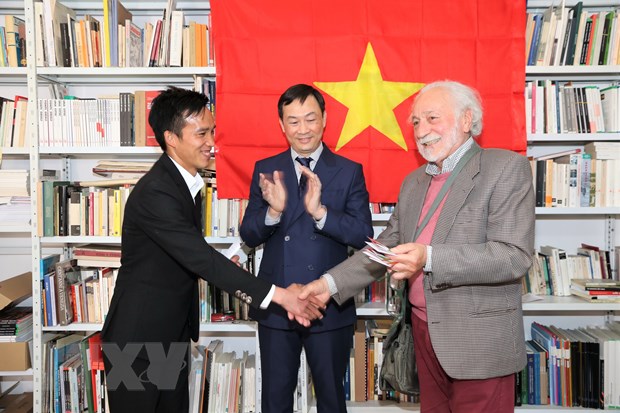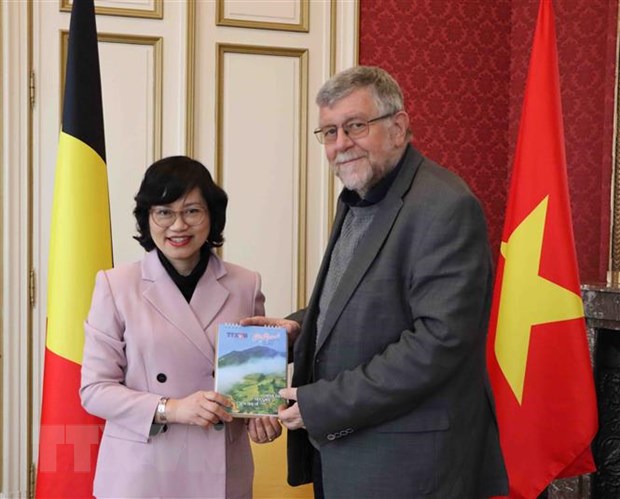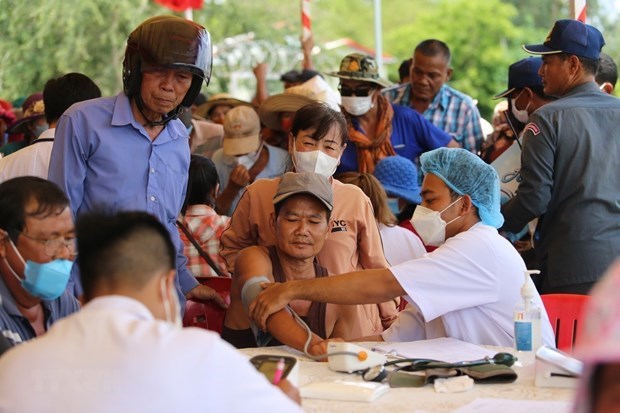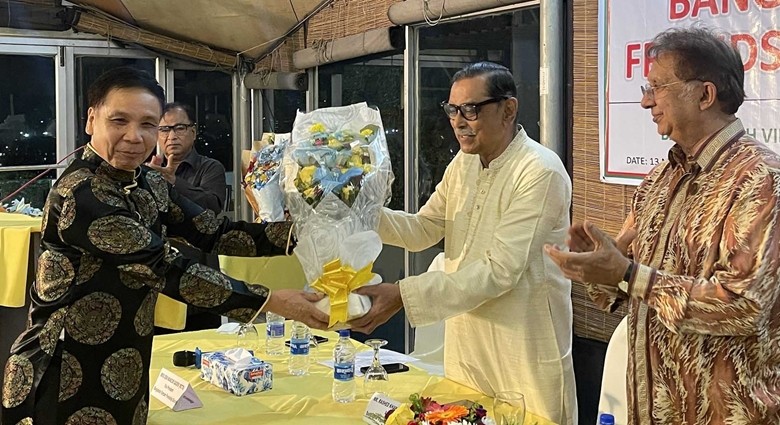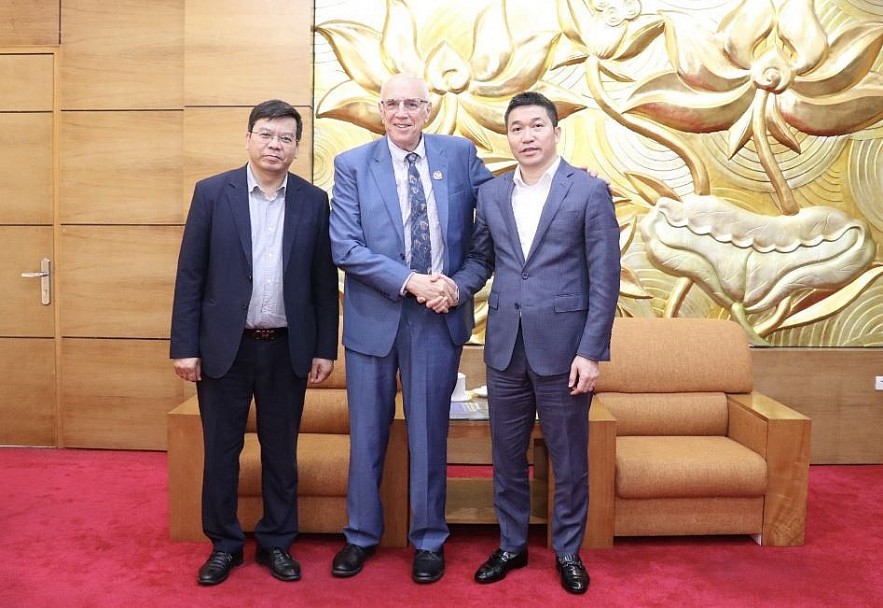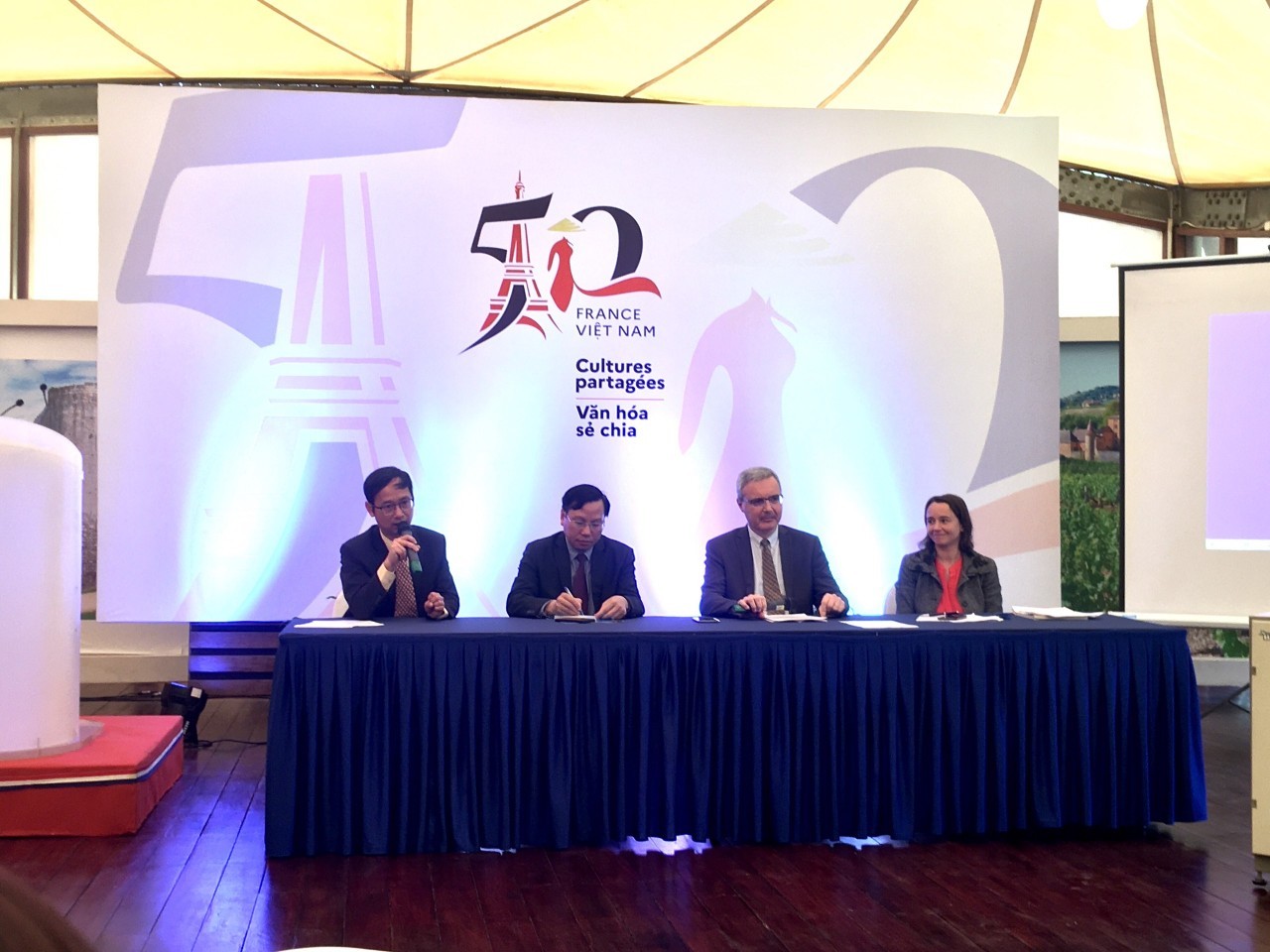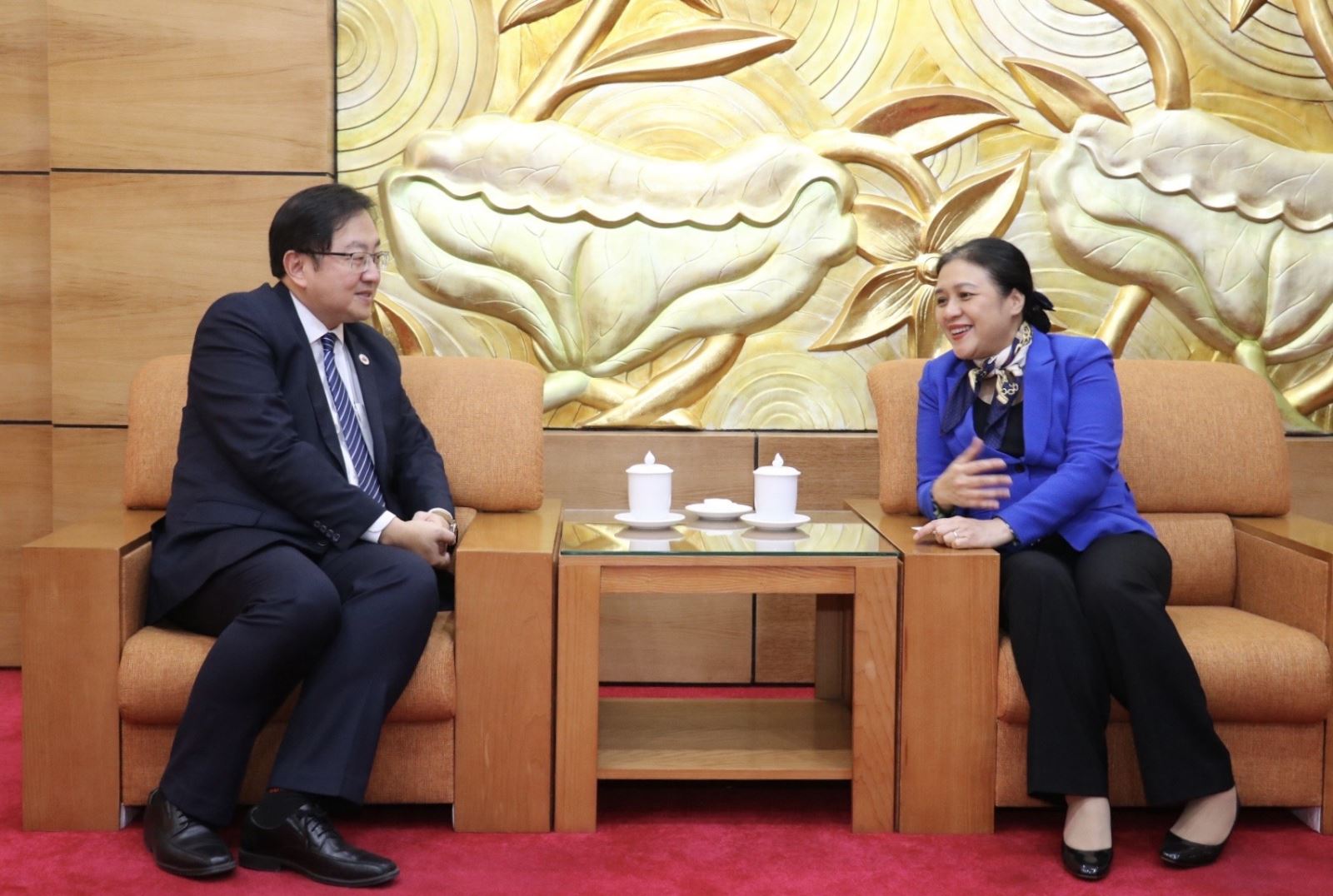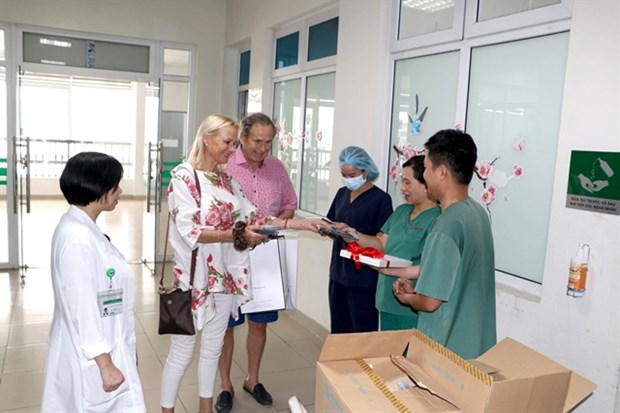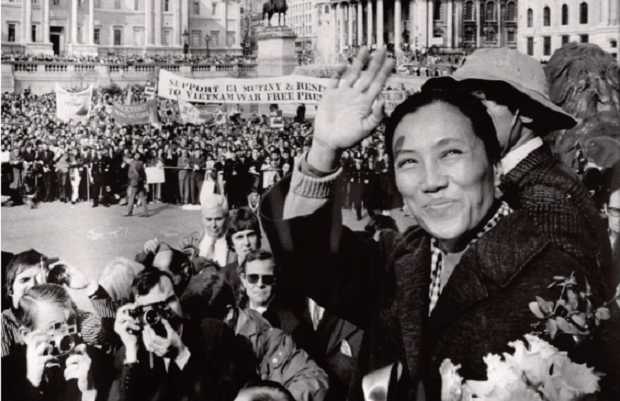
Madame Binh
A woman’s life in war and peace
While attending meeting in Ha Noi in late 2017, I had the privilege of meeting Nguyen Thi Binh.
The then 90-year-old woman was introduced to me by Pallab Sengupta, now president of the World Peace Council. “This is the ‘Mother’ of Viet Nam,” he said, and as I soon discovered, her remarkable life and the struggle for the peace and freedom of her country are inextricably bound. This is her story.
Her birth name was Nguyen Thi Chau Sa. She was born in May 1927 into a politically conscious patriotic family, the oldest of six children. Her grandfather on her mother’s side was the renowned scholar, nationalist and democrat, Phan Chau Trinh who emphasised the role of the people themselves, rather than external intervention, in ending French colonial domination. Following time in detention as a political prisoner, he spent 14 years in exile in Paris where he became like an older brother to the young Ho Chi Minh - as the president was to tell Nguyen Thi Chau Sa many years later. Phan Chau Trinh died in 1926 before his granddaughter was born but had great influence on her, as also did her father, a civil servant and resistance 5ghter, Nguyen Dong Hoi.
French rule
The young girl grew up in a land that had been under French rule since 1858. The country’s resources were plundered, and the people exploited as cheap labour and reduced to grinding poverty. So determined were the French to maintain their colonial hold at whatever cost that they collaborated in power-sharing with the Japanese fascist occupiers who brought horror and starvation from 1940 to 1945.
Despite this, led by the Viet Minh Front, the people of Viet Nam triumphed in the August Revolution of 1945 and the Democratic Republic of Viet Nam (DRV) was declared on 2nd September. Democratic elections took place in January 1946 but immediately French troops, with the open support of the US and Britain, attacked the new Viet Minh administration in the south of the country and the War of Resistance against France began.
The young Nguyen Thi Chau Sa joined the struggle, operating in secret and in constant danger. She joined the Vietnamese Communist Party and, in 1949, began work as a grass-roots organiser. In April 1951 she was arrested in Sai Gon by the French police and imprisoned in the notorious Chi Hoa Detention Centre. Here she was repeatedly interrogated under torture and sentenced to death, However, she was reprieved and released in very poor health in 1954.
Nguyen Thi Chau Sa almost immediately went north to work in Ha Noi for the National Women’s Union. Her job took her to many localities where she witnessed 5rst-hand the impact of colonialism and the French War on ordinary people and especially women and children.
Victory
1954 was a year of momentous victory for the Vietnamese army. The defeated French were forced to sign the Geneva Accords recognising the independence, sovereignty, and unity of Viet Nam. The country was temporarily split in two at the 17th parallel, with the French moving to the south from which they would withdraw, while the Viet Minh went to the north. A general election for the government of a united country was to follow within two years.
But it never happened. The US now came centre stage to ensure that the Accords were never implemented. Driven by strategic interests in the region, it made sure that the country remained divided - preventing an election that would have swept Ho Chi Minh to power with 80% support, while bankrolling, and controlling the reactionary regime of Diem-Nhu south of the 17th parallel. This regime violently suppressed all opposition, executing of thousands of Viet Minh supporters and condemning hundreds of thousands to concentration camps and prisons.
In response, the National Liberation Front (for the liberation of South Viet Nam and unification of the country) was formed in 1960. Nguyen Thi Chau Sa was assigned to the Foreign Affairs Section of its Re-unification Committee and given the name Nguyen Thi Binh (Peace). From 1962 onwards, her high-profile diplomatic work, took her across the world. She represented the aspirations of the people of Vietnam in every country and forum she visited, while the world’s strongest imperialist power made all-out war on her small country.
Her work was outstanding; she was calm, determined and totally focussed on the cause of peace and unification. It is therefore no surprise that when the Paris Peace Conference on Viet Nam formally opened in January 1969, she was chosen as deputy head of the National Liberation Front delegation. Shortly afterwards she came to Britain and addressed crowds massed for peace in Trafalgar Square.
A few months later, the NLF formed the Provisional Revolutionary Government of the Republic of South Viet Nam (PRG) and Nguyen Thi Binh became its minister of foreign affairs and head of its delegation in Paris, a position that she kept throughout what she described as “the longest peace negotiation in history.” Nguyen Thi Binh was the only woman to sign the Paris Agreement on Ending the War and Restoring Peace in Viet Nam on 27th January 1973. South Viet Nam was liberated on 30th April 1975 and the two parts of Viet Nam were 5nally brought together in 1976 as the Socialist Republic of Viet Nam.
Reconstruction
Nguyen Thi Binh now embarked on her remarkable contribution to the reconstruction and development of her country as a place of prosperity and peace – meeting the people’s hopes and aspirations. In her memoirs, she said of this: “My own life, in concert with the life of our nation, has helped me understand that seizing political power and demanding independence were extremely difficult, particularly when opposing colonialists and imperialists. However, maintaining political power and building a nation…is much more difficult.”
From 1976 to 2002 she was a member of the National Assembly, holding the office of minister of education from 1976 until 1987, the first ever woman minister in the history of Viet Nam. Following the long years of war, unification of the education system across the country, reformation of teacher education, eradication of illiteracy and development of the curriculum to match Viet Nam’s needs and aspirations were mammoth tasks.
From 1987 to 1992, returning to diplomacy, she served as deputy head of the Communist Party’s External Relations Department. Then, in 1992, Nguyen Thi Binh was elected Vice-President of the Socialist Republic of Viet Nam, a position she held for two terms until 2002.
Five years on from when I 5rst met her, I saw Nguyen Thi Binh again. This time, now in her midnineties, the honorary president of the Viet Nam Peace and Development Foundation, addressed the Ha Noi Peace Conference by video link in November 2022.
“Having suffered numerous sacri5ces, pain and loss during decades of struggle against foreign aggression and for peace, independence and freedom, the people of Viet Nam deeply appreciate the value of peace,” she told those gathered. Warning that the danger of wars, including a nuclear catastrophe, is greater than ever before, she stressed the vital importance of “rallying and uniting peace forces and movements” to halt aggression and build a world of peace and justice for all.
Her life, her example, and her words are ones we should all heed.
Liz Payne - a member of Liberation’s Education Committee, Chairman of the British Peace Council

